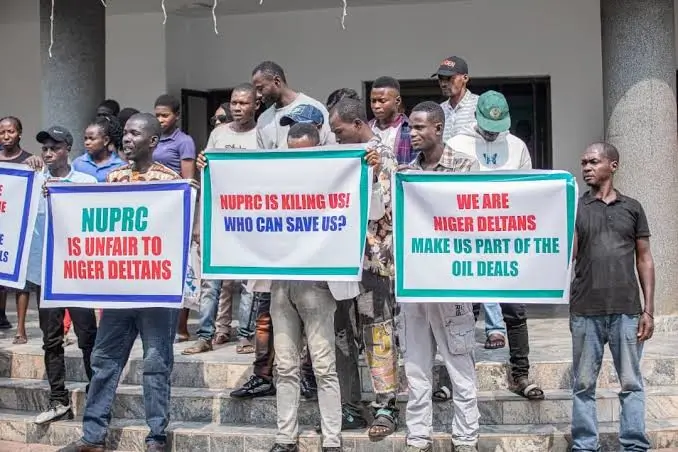The UK government is making bold moves to reshape its trade footprint, with Chancellor Rachel Reeves unveiling a renewed push to finalise the long-anticipated UK Gulf trade pact 2025—a key plank in Britain’s post-Brexit economic playbook.
In a week where central bank watchers tuned into the Bank of England’s latest inflation guidance, Reeves signalled a pragmatic pivot toward Gulf markets, describing the upcoming agreement with the Gulf Cooperation Council (GCC) as “an engine of opportunity” for British exports, energy partnerships, and services trade.

Insert Image 1: Rachel Reeves addressing Parliament Source: BBC
Trade Strategy Meets Monetary Signals
As the UK economy navigates through an uneven recovery, momentum is building behind the UK Gulf trade pact 2025 as a potential driver of external growth. Inflation has begun to ease slightly, but the Bank of England (BoE) remains cautious. Huw Pill, the BoE’s Chief Economist, said in a recent briefing that while price pressures are moving in the right direction, the path to target inflation remains “bumpy.”
Pill avoided suggesting any imminent change in the base rate, instead reinforcing that UK monetary policy in May 2025 must remain “restrained and responsive.”

Image 2: Bank of England headquarters in London Source: iStock
The mixed economic picture gives added weight to Reeves’ trade offensive. With domestic levers limited, international market access—particularly through bilateral agreements—is emerging as a vital growth channel.
UK–GCC Deal: What’s on the Table in 2025?
The UK-Gulf trade agreement is expected to cover a wide range of sectors including:
- Energy technology and green transition collaboration
- Financial services and capital flows
- Defence and cybersecurity partnerships
- Supply chain diversification and port infrastructure
The GCC bloc—comprising Saudi Arabia, UAE, Qatar, Kuwait, Bahrain, and Oman—already accounts for over £45 billion in UK trade. Officials close to the negotiations say the 2025 pact could see this number surge by 30% over the next five years, particularly in sectors aligned with Gulf nations’ economic diversification goals.
Unlike earlier efforts that stalled, Reeves’ Treasury team is now collaborating with the Department for Business and Trade to resolve outstanding issues around trade standards and services access.
Shell, Environmental Diplomacy, and Wider Gulf Optics
Interestingly, as Britain leans into Gulf diplomacy, its global corporations are also drawing attention—sometimes controversially. This week, Shell faced renewed pressure over its legacy oil spills in Nigeria’s Niger Delta, with civil society groups urging the UK government to ensure corporate accountability is not sidelined in pursuit of trade goals.
This adds a layer of complexity to the UK’s broader economic narrative—one where trade, sustainability, and global reputation must be managed in parallel.

Image 3: Niger Delta oil field with community activists protesting
Source: The Cable
BoE, Growth Forecasts, and What Comes Next
While Reeves advances international deals, analysts continue to watch the BoE’s stance on inflation and growth with laser focus. Huw Pill’s comments reinforced that the bank is in no rush to cut interest rates, and any easing would depend on sustained disinflation and wage moderation.
Also Read: UK Inflation Surges Again: What It Means for Households and the Bank of England
The central bank’s current base rate remains at 5.25%, with market pricing reflecting no more than one potential rate cut before year-end.
Business Outlook: Navigating Trade, Inflation, and Transition
The convergence of trade diplomacy and monetary caution underscores the fine balancing act facing Britain’s economic leadership. On one side, UK trade policy post-Brexit must show agility and vision. On the other, macroeconomic stabilisation depends on carefully timed decisions from the BoE.
In this landscape, the UK Gulf trade pact 2025 is more than a line in a policy paper—it is an essential tool for buffering domestic industries from stagnation, fuelling high-value services exports, and repositioning the UK as a trusted trading partner beyond Europe.
Conclusion: A Defining Year for UK Policy Architecture
As Rachel Reeves sharpens the UK’s global trade pitch and the Bank of England maintains a watchful grip on inflation, 2025 is shaping up to be a pivotal year for Britain’s post-Brexit identity.
If the UK trade Gulf agreement lands on time and monetary policy threads the needle, the economy could be poised for a more confident trajectory. But execution—on both fronts—will be everything.

